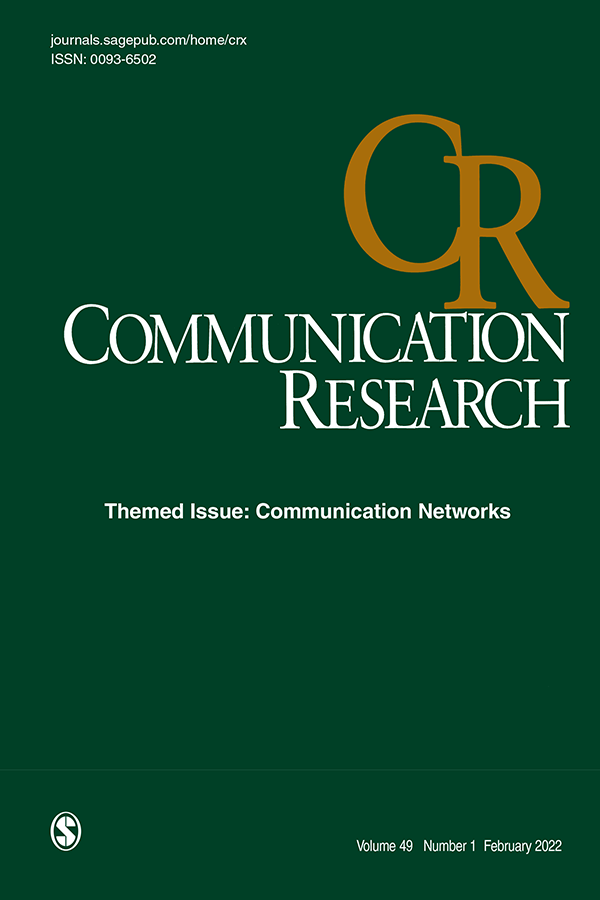政党内部和政党之间的政治分歧作为情感两极分化和党派间接触意愿的预测因素:政治差异管理风格的调节作用
IF 3.2
1区 文学
Q1 COMMUNICATION
引用次数: 0
摘要
人际政治讨论在民主社会中是一种规范的价值实践,它塑造了两极分化的态度,并影响了在分裂的政治景观中未来的接触意图。本文运用社会认同理论、群体间接触理论和冲突管理风格理论,探讨了党内外政治分歧、情感极化和参与党际接触意愿之间的关系。此外,我们研究了这些关联如何取决于个人管理政治分歧的风格。利用横断面调查数据(N = 732),我们发现与党外成员意见分歧的质量提高和与党内成员意见分歧的频率增加与群体间态度的改善有关。此外,这些关系取决于竞争分歧管理风格。本文章由计算机程序翻译,如有差异,请以英文原文为准。
Intraparty and Interparty Political Disagreement as Predictors of Affective Polarization and Willingness to Engage in Interparty Contact: The Moderating Role of Political Difference Management Styles
Interpersonal political discussion is a normatively valued practice in a democracy, shaping polarizing attitudes and influencing future contact intentions in divided political landscapes. Applying social identity, intergroup contact, and conflict management styles theories, in this article, we investigate the associations between political disagreement with in-party and out-party members, affective polarization, and willingness to engage in interparty contact. Additionally, we examine how these associations are contingent upon individuals’ styles for managing political disagreement. Using cross-sectional survey data ( N = 732), we found that better quality of disagreement with out-party members and more frequent disagreement with in-party members are related to improved intergroup attitudes. Furthermore, these relationships vary depending on the competing disagreement management style.
求助全文
通过发布文献求助,成功后即可免费获取论文全文。
去求助
来源期刊

Communication Research
COMMUNICATION-
CiteScore
17.10
自引率
0.00%
发文量
20
期刊介绍:
Empirical research in communication began in the 20th century, and there are more researchers pursuing answers to communication questions today than at any other time. The editorial goal of Communication Research is to offer a special opportunity for reflection and change in the new millennium. To qualify for publication, research should, first, be explicitly tied to some form of communication; second, be theoretically driven with results that inform theory; third, use the most rigorous empirical methods; and fourth, be directly linked to the most important problems and issues facing humankind. Critieria do not privilege any particular context; indeed, we believe that the key problems facing humankind occur in close relationships, groups, organiations, and cultures.
 求助内容:
求助内容: 应助结果提醒方式:
应助结果提醒方式:


